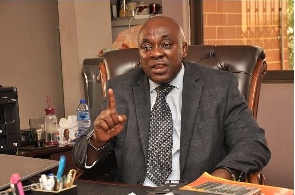 Ghana has played in three world cups
Ghana has played in three world cups
The state of football in Ghana is declining: the disappointing display of maladministration and financial shenanigans in the 2014 World Cup, a heart-breaking defeat in the finals of the 2015 AFCON, and the team’s earliest elimination from the AFCON 2019.
Ghanaian football icons like Abedi Pele, Tony Yeboah, Kwame Ayew, Sammy Kuffour, Odartey Lamptey and Stephen Appiah, made Ghanaians fall in love with football. They were phenomenal. They raised the bar in Africa, and nothing but the best was expected from them.
These high expectations have made it difficult for Ghanaian football fans to accept mediocre performances.
About five months ago, I interacted with 12 Ghanaian football fans to understand their views on the problems facing youth football in Ghana.
In this post, I will discuss the problems from the perspective of Ghanaian football fans. The previous post explored the problems from the perspective of 10 youth football players in Ghana. (Click here to read)
Frankly, most Ghanaian football fans are fed up with the Black Stars and the authorities handling football in the country. The issues they shared can be summed up into two: “redundant” investment in the Black Stars and “uncontrolled” migration of young talented players.
“Redundant” Investments
Over the past 38 years, Ghana has participated in the African Cup of Nations (AFCON) without taking home the trophy. Every AFCON campaign since 1982 has been one disappointment after the other. All the football fans I interacted with blame the authorities for spending so much on the Black Stars. One stated, “money is a rather dangerous motivation because you have to be paid more to do more, and sometimes it doesn’t work”.
It was surprising to find out that money has been a tool for motivating the Black Stars since 2006. Huge bonuses were introduced to the Black Stars and that became the norm. Little did we know that these little drops of bonuses will lead to an inevitable ocean of problems.
The authorities have taken so many steps in the wrong direction. Increasing winning bonuses, appearance fees, per diem etc.
There is no need to first change a car’s tyres when the car’s engine is old and rusty.
The engine for football’s growth is grassroots or colts football. A good example is the U-20 team, the Black Satellites, that won the World Cup in 2009. 6 of the players that contributed to that success received a call-up from the Black Stars to play in the 2010 World Cup. The results are obvious.
Slice the winning bonuses and use it to build training facilities to recruit top talents for the youth national teams. Reduce the appearance fees and invest in talent development coaches.
The neglect of youth football will only lead to investing more in the Black Stars which does not produce better results.
The top European national teams in the world have very robust and award-winning youth national teams. It is not by coincidence.
Unsurprisingly, the failure to invest in youth football is interconnected with the uncontrolled migration of young talented players.
“Uncontrolled” Migration
Recording 286 Ghanaian players exported in 2019, International Centre for Sports Studies (CIES) ranked Ghana as Africa’s second-biggest exporter of footballers.
The football fans are of the view that the difficulty in securing employment, the low salaries of professional footballers and the poor development of the game at the youth level, pushes young players out of the country to seek for greener pastures.
They added that usually, European scouts are after young children, pre-adolescents at best. The local grassroots team coaches or self-made “football agents” are also eager to make money off talented players. The hopeful players also, willingly do as their coaches say.
Though there is a possibility of Ghana benefiting from such migration (i.e. well-trained and skilled young players, and financial gains from trading young players), there are several risks involved for those who do not make it.
Players who do not get recruited by any club after years of training in academies abroad are abandoned in appalling conditions. Some players get their passports seized by the European scouts as they were gained illegally. Others are lucky to be deported.
Very few become citizens of other countries and represent those countries in international competitions.
The football fans I interacted with stated that,
“Many African football stars were recruited illegally, and they should share their stories to advise the younger ones”.
This is not backed by facts. Nevertheless, the Cameroonian football icon, Samuel Eto’o was illegally living in France for nine months with no documentation, in the quest to play in a French top-tier club.
If young player migration is controlled and records are kept to ensure the safety of these players, there is a higher chance our youth national teams will be honoured with major trophies.
Football is a lucrative business across the world, but maladministration and mismanagement of funds have cost the growth of Ghanaian football. Evaluating the measures used to encourage the Black Stars and focusing on the fundamental problem (i.e. neglecting grassroots football), can reduce the incessant pain of our pounding hearts during competitions. In the long run, love and passion for the national football teams can be restored once more.
In the next post, I will provide a breakdown of how I think youth football can be revived in Ghana. This suggested plan of action is based on data I collated from relevant stakeholders in the football industry in Ghana.
- Berekum Chelsea beats Dreams FC 3-2 at Golden City Park
- 2026 World Cup Qualifiers: Ghana likely to play home game against Mali in another country - Reports
- The new Black Stars: Why Otto Addo shouldn't build his team around Mohammed Kudus
- Start building Black Stars around Mohammed Kudus as soon as possible - CK Akonnor
- Edmund Addo opens up on missing Ghana’s squad for 2023 AFCON
- Read all related articles












